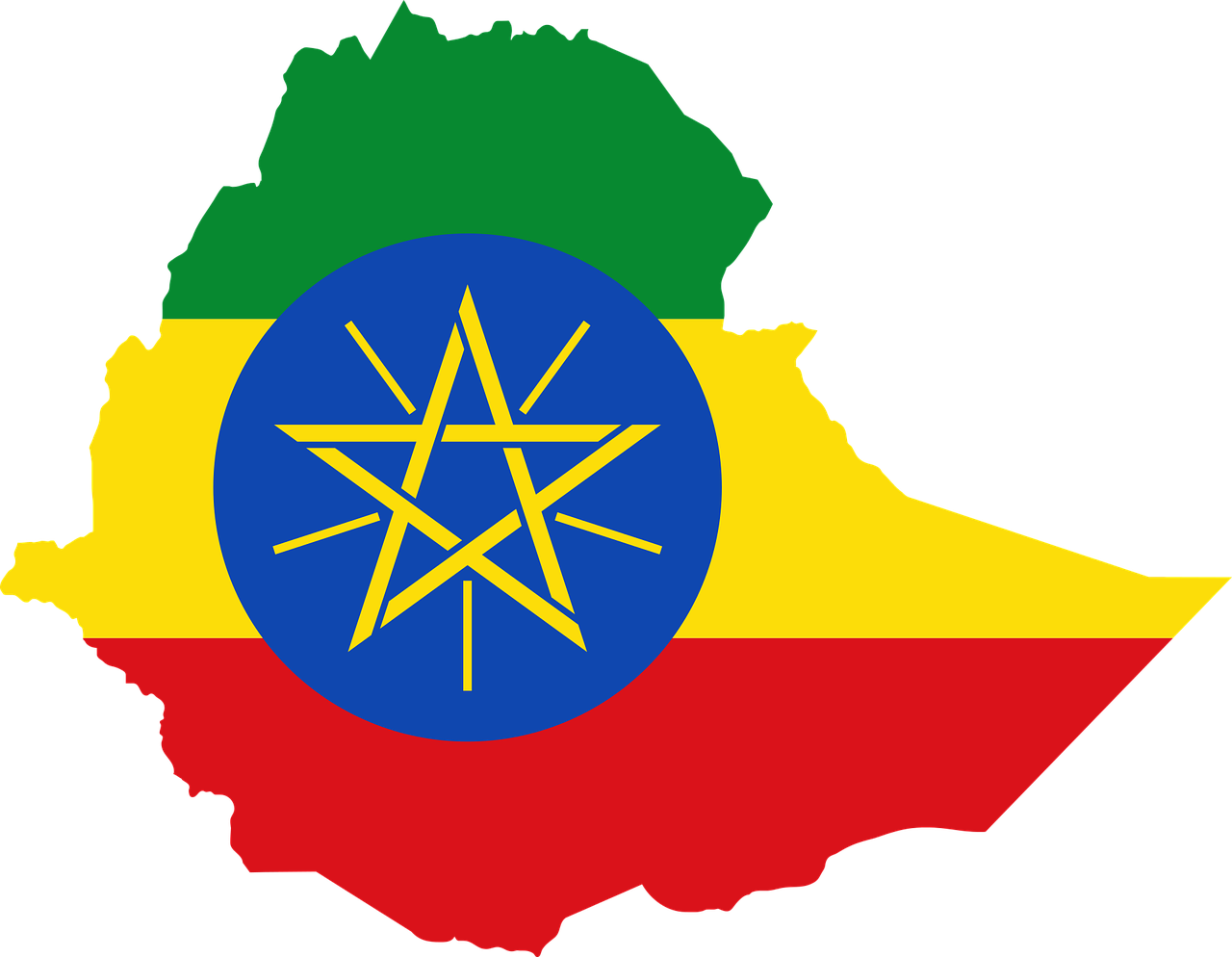Ethiopia
Overview
The Land of Origins, A Beacon of Opportunity
Situated in the Horn of Africa, Ethiopia is a land steeped in history and rich in cultural heritage. Often referred to as the "Cradle of Humanity," it is home to some of the world's oldest human settlements, with archaeological finds dating back millions of years.
Addis Ababa, the capital city, serves as the political and cultural heart of the nation, and also as the headquarters of the African Union, emphasizing Ethiopia's significance in continental affairs. The city is a blend of the old and the new, with historical landmarks standing alongside modern infrastructure.
Ethiopia's economy, once primarily agrarian, has been undergoing a significant transformation. While agriculture, especially coffee production, remains a major sector, there has been a concerted push towards industrialization and diversification. The Ethiopian government has been investing heavily in infrastructure, energy, and manufacturing sectors, aiming to make the nation a leading industrial hub in Africa.

The country's rich cultural tapestry, with over 80 ethnic groups and languages, is reflected in its festivals, music, dance, and cuisine. The ancient rock-hewn churches of Lalibela, the ruins of Aksum, and the Simien Mountains are just a few of the UNESCO World Heritage sites that showcase Ethiopia's diverse heritage.
With its strategic location, abundant resources, and a young, dynamic workforce, Ethiopia presents a plethora of opportunities for investors and businesses. As one of the fastest-growing economies in the world, it beckons those looking to be part of an African success story.
Key indicators

Population

GDP per capita

Nominal GDP

Purchasing Power Parity GDP

Main export

Foreign direct investment

Stock market capitalization

GDP growth rate
- Economic Snapshot
- Business Environment
- Startup Ecosystem
- Infrastructure & Technology
- Opportunities & Challenges
- Cultural Insights
Ethiopia is a lower-middle-income country in East Africa. The country has a diverse economy, with major sectors including agriculture, industry, and services. Ethiopia is also a major producer of coffee.
The Ethiopian government is committed to economic reform and diversification. The government is investing in infrastructure, education, and healthcare. The government is also working to improve the business climate and attract foreign investment.
Ethiopia's economy has been growing steadily in recent years. The country's GDP grew by 5.4% in 2022. However, Ethiopia's economy is facing a number of challenges, including inflation, unemployment, and poverty.
Ethiopia's business environment is improving, but there are still a number of challenges. The country ranks 159th out of 190 countries in the World Bank's Ease of Doing Business Index.
The main challenges to doing business in Ethiopia include:
- Corruption: Corruption is a major problem in Ethiopia. The country ranks 116th out of 180 countries in Transparency International's Corruption Perception Index.
- Bureaucracy: The Ethiopian bureaucracy can be complex and time-consuming to navigate.
- Infrastructure: Ethiopia's infrastructure is underdeveloped, which can make it difficult and expensive to transport goods and people.
- Access to finance: Access to finance can be a challenge for businesses in Ethiopia, especially small and medium-sized enterprises (SMEs).
Despite the challenges, Ethiopia offers a number of opportunities for businesses and investors. The country has a large and young population, a growing economy, and a government that is committed to economic reform.
Ethiopia's startup ecosystem is still in its early stages of development, but it is growing rapidly. There are a number of startup incubators and accelerators in Ethiopia, and the government is providing support to startups.
Some of the most promising sectors for startups in Ethiopia include:
- Fintech: Ethiopia has a large and young population, and there is growing demand for fintech services.
- E-commerce: E-commerce is growing rapidly in Ethiopia, as more and more people gain access to the internet and smartphones.
- Agriculture: Ethiopia has a large agricultural sector, and there are opportunities for startups to develop new technologies and services to support the sector.
- Healthcare: Ethiopia's healthcare system is underdeveloped, and there are opportunities for startups to develop new healthcare products and services.
Ethiopia's infrastructure is underdeveloped, but the government is investing heavily in new infrastructure projects. The government is also investing in the development of Ethiopia's digital economy.
Ethiopia has a nationwide 4G LTE network, and the government is planning to launch a 5G network in the coming years. Ethiopia also has a growing number of internet users, and the government is working to expand internet access to rural areas.
The government is also investing in new transportation infrastructure, such as roads, bridges, and airports. The government is also working to improve Ethiopia's energy infrastructure.
The development of Ethiopia's infrastructure is essential for economic growth. Better infrastructure will make it easier and cheaper to transport goods and people, and it will also make Ethiopia more attractive to foreign investors.
Ethiopia offers a number of opportunities for businesses and investors. The country has a large and young population, a growing economy, and a government that is committed to economic reform.
One of the key opportunities for businesses and investors in Ethiopia is in the infrastructure sector. The government is investing heavily in new infrastructure projects, such as roads, bridges, and power plants. This is creating new opportunities for businesses in the construction and engineering sectors.
Another opportunity for businesses and investors in Ethiopia is in the non-agricultural sector. The government is committed to economic diversification, and is investing in a number of sectors, including manufacturing, services, and tourism. This is creating new opportunities for businesses in a wide range of sectors.
However, there are a number of challenges to doing business in Ethiopia. The main challenges include:
- Corruption: Corruption is a major problem in Ethiopia.
- Bureaucracy: The Ethiopian bureaucracy can be complex and time-consuming to
Ethiopia is a country with a rich and diverse culture. The country has over 80 ethnic groups, each with its own language and culture. Ethiopia is also home to a number of religious groups, including Orthodox Christians, Muslims, and Protestants.
Ethiopians are generally friendly and welcoming people. They are also very proud of their culture and heritage. Businesses and investors who are respectful of Ethiopian culture will likely be successful in the country.
Here are some additional cultural insights for businesses and investors operating in Ethiopia:
- Ethiopians place a high value on family and community.
- Ethiopians are generally respectful of authority figures.
- Ethiopians prefer face-to-face meetings to email or phone calls.
- Ethiopians are known for their hospitality.
- Ethiopians are also known for their love of music and dance.
Businesses and investors who understand and respect Ethiopian culture will be better positioned to succeed in the country.
Here are some specific tips for businesses and investors operating in Ethiopia:
- Dress appropriately when meeting with Ethiopian business people. Men should wear suits and ties, and women should wear conservative business attire.
- Be prepared to spend time socializing before getting down to business. Ethiopians value relationships, and it is important to build rapport with them before discussing business matters.
- Be patient and understanding. Ethiopians are generally relaxed and easy-going, but they can also be quite shrewd business people. It is important to be patient and to be prepared to negotiate.
- Be honest and transparent. Ethiopians value honesty and transparency in business dealings. Be prepared to be open and honest with them, and to be accountable for your actions.
By following these tips, businesses and investors can increase their chances of success in Ethiopia.
Here are some additional tips:
- Be aware of the Ethiopian calendar and avoid scheduling meetings during major religious holidays.
- Be respectful of Ethiopian religious customs and traditions.
- Be aware of the Ethiopian dress code and avoid wearing revealing clothing.
- Be mindful of your body language and avoid making gestures that could be considered offensive in Ethiopia.

Investment Landscape & Opportunities in Ethiopia
- Start-up & SME Investments
- Impact & Green Investments
- Government Bonds & Stock Market
- Public-Private Partnerships
- Foreign Direct Investments
- Commodities & Infrastructure Investments
- Real Estate Development
- Cultural and Creative Industries

Leading
startups in Ethiopia
Comming up soon

